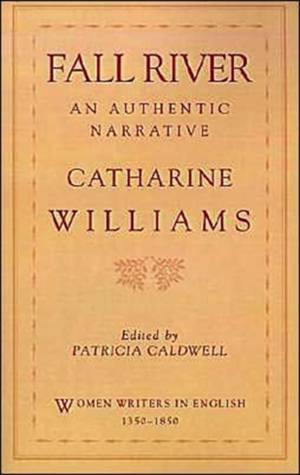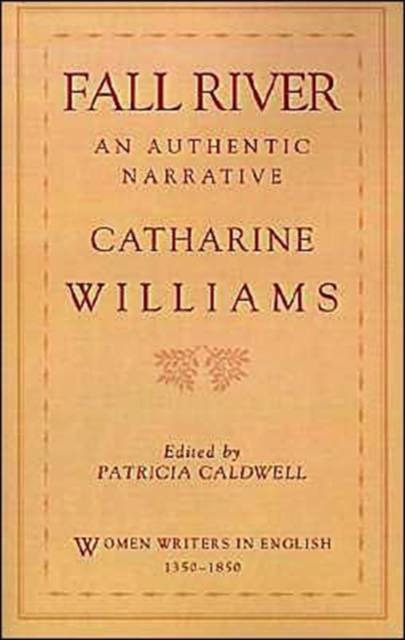
- Afhalen na 1 uur in een winkel met voorraad
- Gratis thuislevering in België vanaf € 30
- Ruim aanbod met 7 miljoen producten
- Afhalen na 1 uur in een winkel met voorraad
- Gratis thuislevering in België vanaf € 30
- Ruim aanbod met 7 miljoen producten
Zoeken
Omschrijving
Catharine Williams (1787-1872) lived most of her life in Rhode Island, where she supported herself and her daughter by a productive literary career. Her most compelling work, Fall River, last published in 1833, recreates a notorious incident in the ill-fated town of Fall River, Massachusetts: the trial of a Methodist minister for the murder of a pregnant mill worker whom it was suspected he had seduced. Williams's investigative report offers a vivid contemporary view of the lives of poor "factory girls" and of clerical corruption in the industrial towns of early New England. While based in fact, the book raises themes of sexual and religious hypocrisy and exploitation that may be compared with those of novels like The Coquette, Uncle Tom's Cabin, and The Scarlet Letter. At the same time, the author's mixture of journalism, biography, fiction, and exhortation makes this "authentic narrative" an unusual challenge to traditional notions of literary form and yields fresh insights into the nature of early American women's writing.
Specificaties
Betrokkenen
- Auteur(s):
- Uitgeverij:
Inhoud
- Aantal bladzijden:
- 192
- Taal:
- Engels
- Reeks:
Eigenschappen
- Productcode (EAN):
- 9780195083590
- Verschijningsdatum:
- 2/09/1993
- Uitvoering:
- Paperback
- Formaat:
- Trade paperback (VS)
- Afmetingen:
- 138 mm x 209 mm
- Gewicht:
- 249 g

Alleen bij Standaard Boekhandel
+ 281 punten op je klantenkaart van Standaard Boekhandel
Beoordelingen
We publiceren alleen reviews die voldoen aan de voorwaarden voor reviews. Bekijk onze voorwaarden voor reviews.











